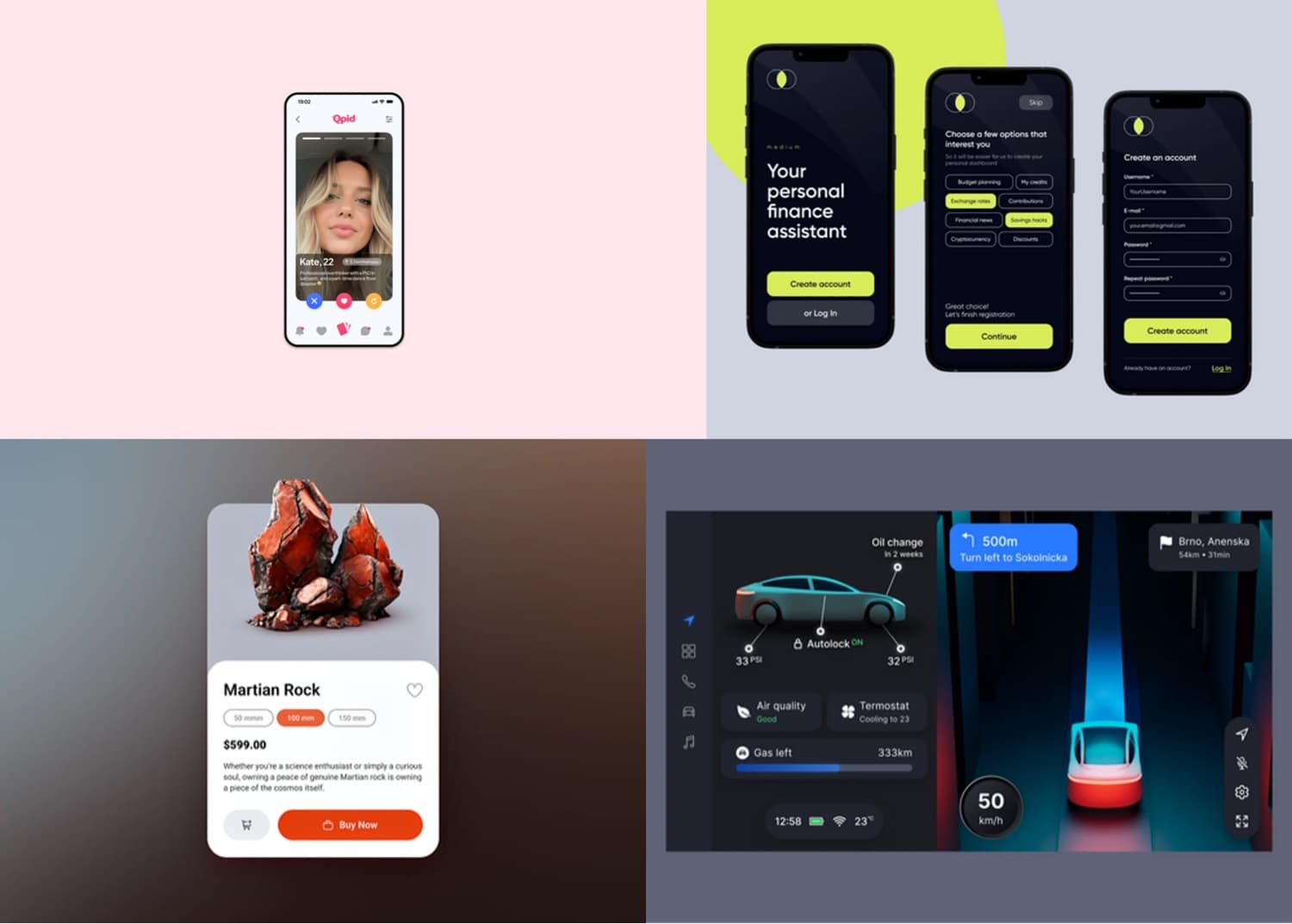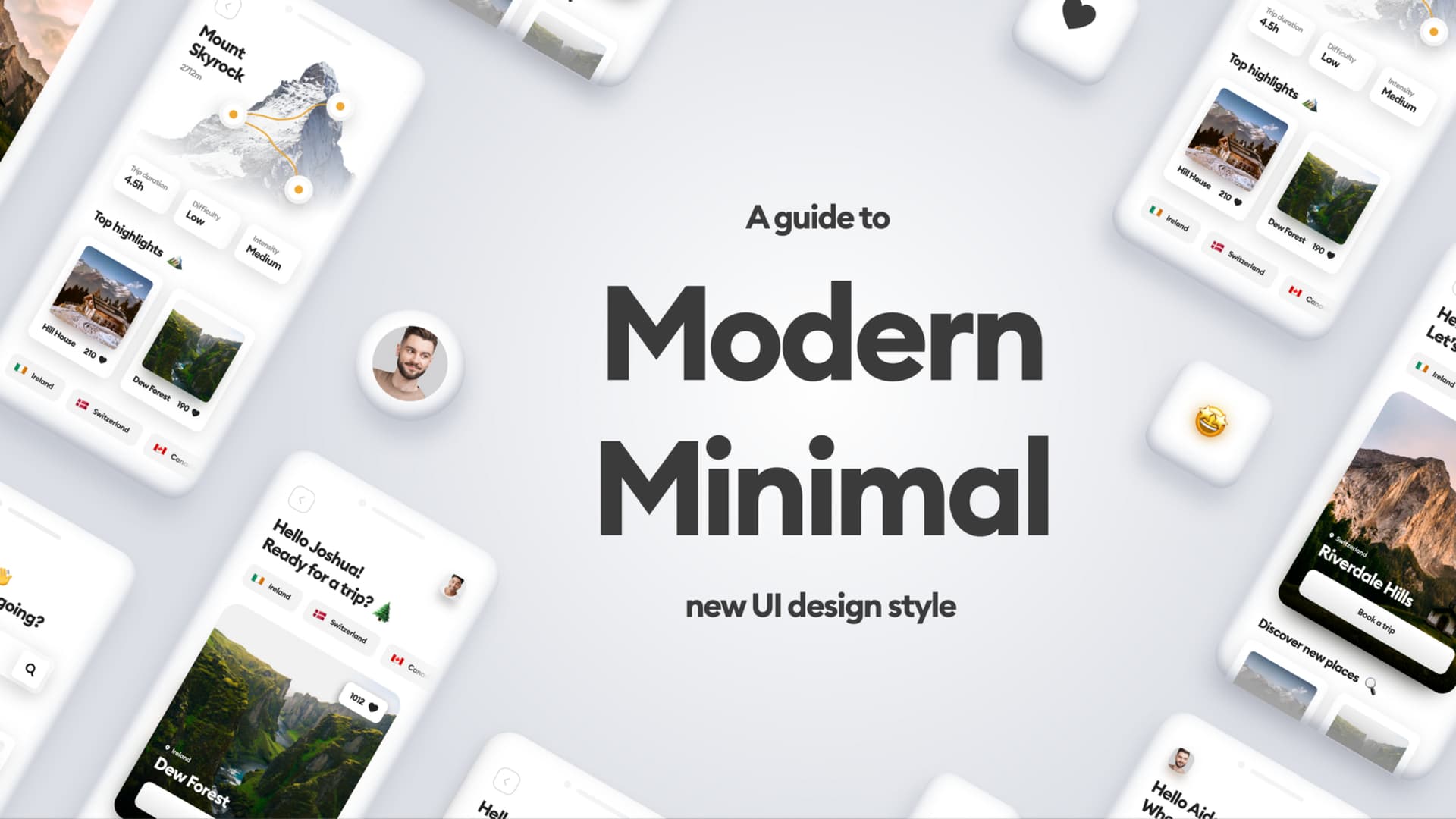Doing daily UI challenges is an awesome way for designers to improve their skills and stay consistent in their creative growth.
By getting daily design prompts you're pushed to explore new UI concepts, tools, and techniques.
Doing things like mobile apps, dashboards or even just playing around with typography and colors is great! It boosts your UI skills very fast!
Having that much work created is also great for having a versatile, robust portfolio.
Daily exercises also encourage problem-solving. They simulate real-world scenarios, like improving a product card design. That requires both the visual skills and critical thinking.
It's like the best possible combination ever! And practicing it daily is a superpower! It instantly makes designers more competitive, especially when they have hundreds of daily challenges to show for it.
Force of habit
Another benefit of daily challenges is developing a habit of creative discipline.
Whether you're working on micro-interactions, wireframing, or simple UI designs, the consistency is what matters. It helps boost your attention to detail.
And as a byproduct it also helps you better understand your design tools like Figma, Sketch or Penpot.
If you commit to doing it daily, you switch to a designer mindset and stay in it. That is the best spot to be if you really want to be great at design. You need to live, breathe and think like a designer 24/7.
Challenging yourself is needed for that.

Grow your skills
You get more innovative when you're presented with a new problem every day. Being quick on your feet and designing a completely different thing each day engages your brain.
You want that! After a while it starts becoming both unique, visually engaging and just plain good!
Participating in daily challenges is not just a skill boost though. It expands your understanding of user needs and business needs. How they both tie together and how to be a designer that gets that.
Over time, this structured practice builds confidence, making you more agile and adaptable. Basically you're ready to tackle complex design projects. And it all comes from practice!
Design trends
Daily UI challenges also serve as an excellent way to stay updated with evolving design trends. We helped create a couple here like Neumorphism, Glassmorphism and Aurora.
I'm well aware that it feels great to jump onto a trend and follow it, but the true mastery is somewhere else. Is in understanding the UI trends are constantly shifting and merging. Following a single trend will get you nowhere. You need to follow them all.
See how they intersect. Tweak and adjust them. And at some point you'll see that you still can create something that both works and is completely unique.
There are new trends, methods and techniques arriving every year. By practicing daily you embrace that and stay on top of the game.
Focus on the users
Trying new things is also getting out of the comfort zone. You think about how the user would use the product. Solve a difficult problem AND make it look good.
Designing for accessibility or crafting good navigation patterns comes from that repetition. Having guides in the challenges is a perfect way to repeat the right approach, so with guides you definitely learn faster. Much, much faster!

Daily grind
I know it's tough! Having the time every single day, including weekends, to design something. There are days where you're out of ideas. Where you don't feel like it. But that is how life really is.
It won't bend to you. You will often have to solve a complex design problem when you're least mentally prepared for it.
That continuous design exposure is what makes you relevant.
Building a portfolio
We also encourage you to use your challenges as part of your portfolio. Every person does them differently. The same product card can have different style, typography, colors and product. That makes it unique.
Add on top of that different ways to present it for even more differentiation. It can be a flat design on a background, a beautiful mockup, or shown as a photo on a phone in your hand.
After a while these challenges add up. From an empty portfolio site you can end up with hundreds of little project examples.
That not only shows a wide skillset but also it shows discipline.
It shows you are commited.
Because when you design daily you ARE a designer. And that is what matters here.
That's why the challenges exist and why they're tough and strict.





